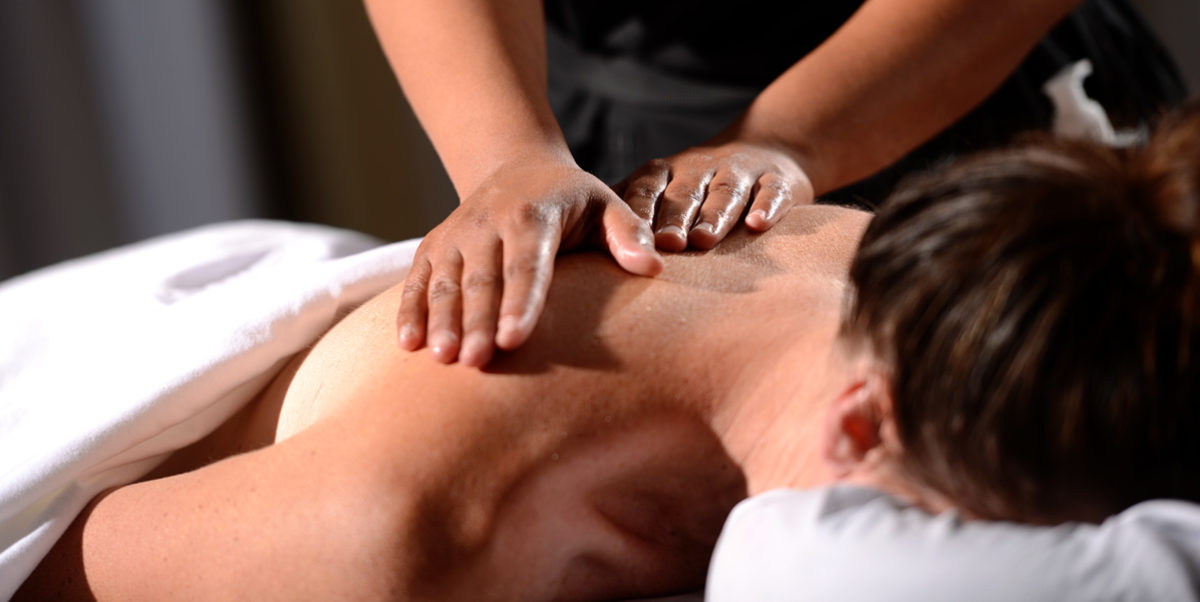Massage Therapy

Certificate Program
Division of Allied Health and Professions | Wellness

Trocaire’s newly reimagined certificate is Western New York’s fastest, most efficient route to completing your massage therapy education. Our students enjoy a dependable schedule, with no nights and no weekends required for classroom or clinical work.
The program combines lecture, laboratory experiences and a clinical component to provide a well-rounded and comprehensive understanding of both Eastern and Western massage therapy techniques. In addition to staffing our on-site massage therapy clinic, students participate in a variety of off-site clinical rotations at local facilities—a unique advantage of Trocaire’s program.
Healthcare has come to mean far more than hospital stays and doctor visits. Massage therapy techniques improve muscle tone and circulation and promote overall wellness, stress management and rehabilitation and massage therapists are at the forefront of a growing movement toward holistic wellness and the use of complementary therapies.
Graduates of the program will be eligible to sit for the NYS board licensure exam. Once licensed, graduates have wide-ranging career options that include wellness massage in spas, resorts, and cruise ships; sports massage in health clubs; medical massage in hospitals, rehab centers and chiropractic offices; stress-management massage in corporate offices; and owning and operating private practices. This fascinating, flexible, hands-on career is for anyone who wants to help people discover the power of preventative, proactive care.
As part of a Mercy college, you will experience a caring environment with wraparound support and a holistic approach to student success. Educational technology and support, career services, Massage Therapy Club, Catherine’s Cupboard student food pantry and fun activities organized by the Student Life office are just a few of the added benefits of being part of Trocaire.
Certificate: Massage Therapy
Program Format
Time of Program: Day
Mode of Delivery: On-site/Seated
AAS Associate Program
Division of Allied Health and Professions | Wellness
Healthcare has come to mean far more than hospital stays and doctor visits. The massage therapy industry is at the forefront of a growing movement toward holistic wellness and the use of complementary therapies. Massage therapy techniques improve muscle tone and circulation and promote overall wellness, stress management and rehabilitation. Massage is an art and science of healing with more than 4,000 years of history behind it. This fascinating, flexible, hands-on career is for anyone who wants to help people discover the power of preventative, proactive care.
Trocaire’s Massage Therapy Program combines lecture, laboratory experiences and a clinical component to provide a well-rounded and comprehensive understanding of both Eastern and Western massage therapy techniques. In addition to staffing our on-site massage therapy clinic, students participate in a variety of off-site clinical rotations at local facilities—a unique advantage of Trocaire’s program.
Graduates of the program will be eligible to sit for the NYS board licensure exam. Once licensed, graduates have wide-ranging options in both the types of massage they’ll practice and the settings in which they will work. Possibilities include wellness massage in spas, resorts, and cruise ships; sports massage in health clubs; medical massage in hospitals, rehab centers and chiropractic offices; stress-management massage in corporate offices; and general massage in private practices.
AAS: Massage Therapy
Program Format
Time of Program: Day
Mode of Delivery: On-site/Seated

